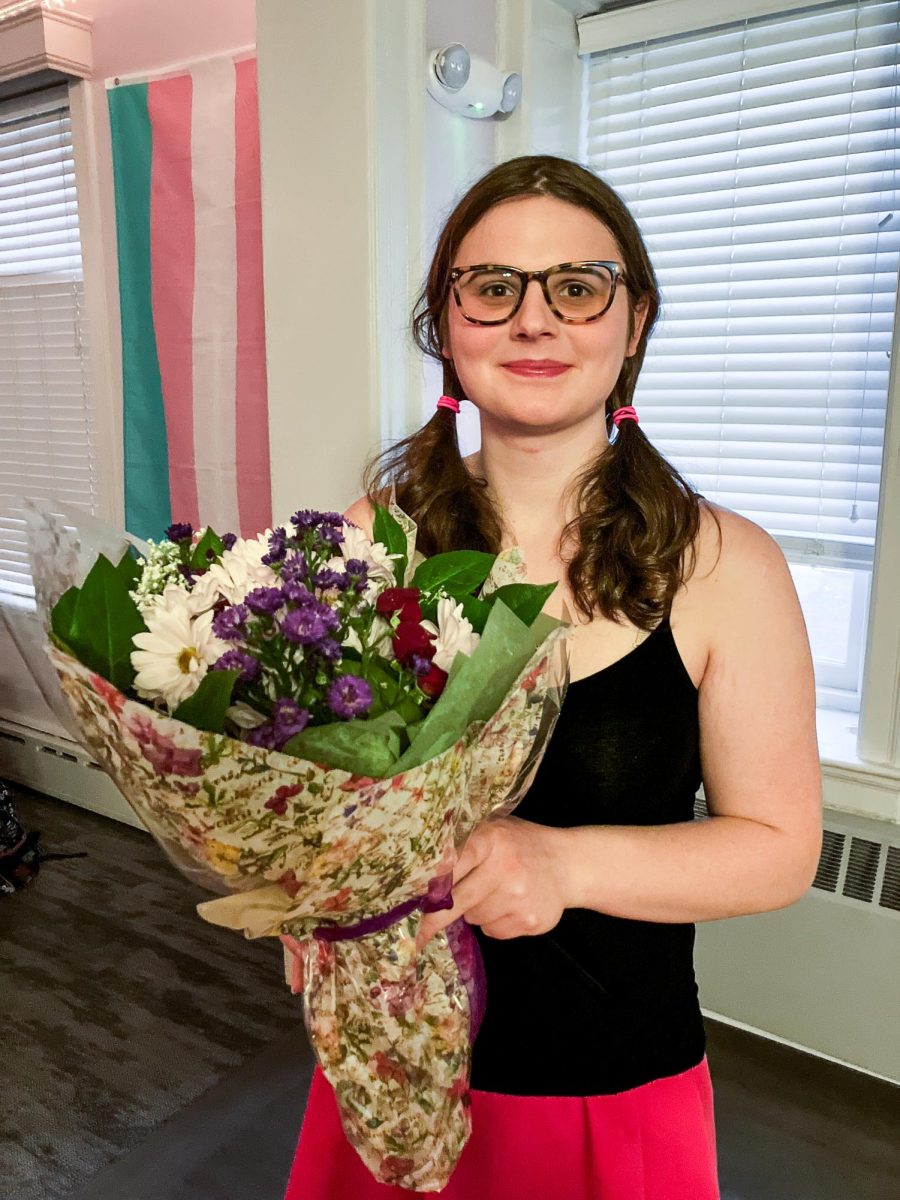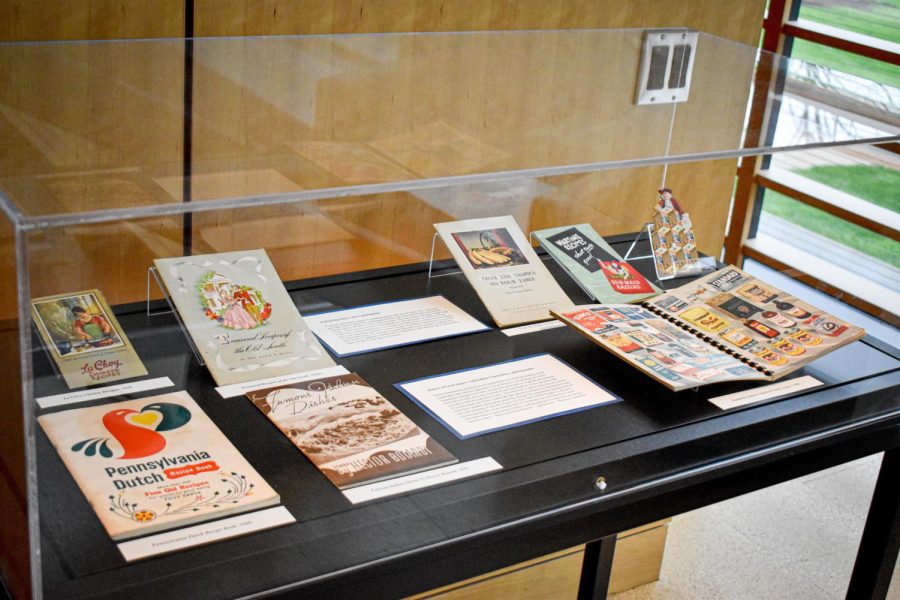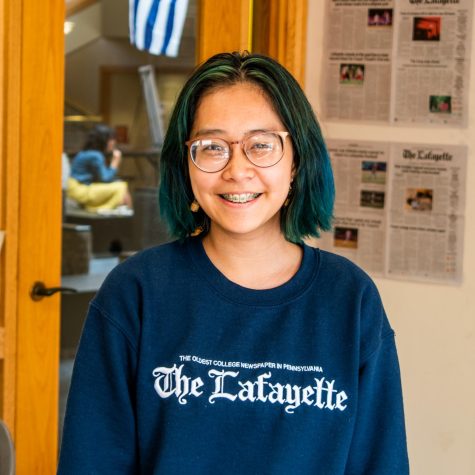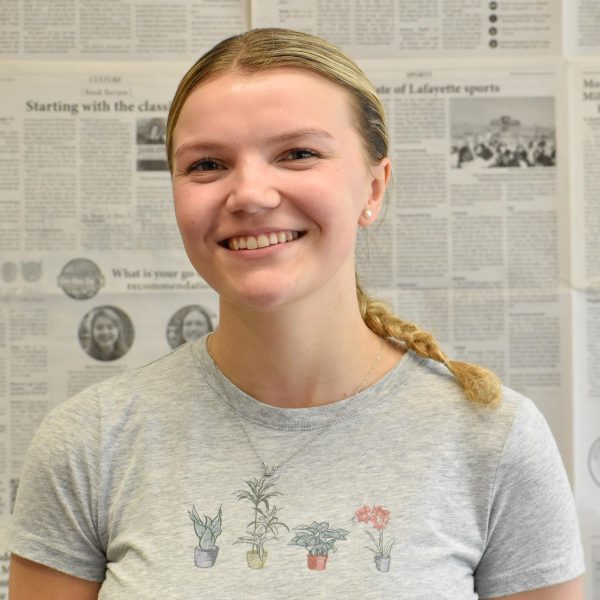Stefano Mancini ‘22 has always been a fierce lover of food. He grew up attending Sunday dinners at his grandma’s house, where she served homemade pasta, sauce and meatballs. Now, in addition to enjoying the food on his plate, Mancini studies it.
Right now, students can visit the first floor of Skillman Library to view selected items from Lafayette’s food studies collection. Mancini curated the exhibit of culinary ephemera—materials related to food and cooking that would not normally have a long shelf life, like posters and booklets—as a Friends of Skillman Library fellow.
The exhibit is organized according to six themes: 1) technology and modernization, 2) gender and domesticity, 3) nutrition, 4) authorship, 5) race and ethnicity and 6) nationalism, commodities and economics.
Mancini argued that the culinary ephemera displayed in this exhibit are useful primary sources for learning about history.
“They’re amazing sources for histories of gender ideals. They’re great for histories of science and histories of nutrition, histories of products that are marketed as having a scientific basis of legitimacy for being healthier and cleaner, easier to make,” he said.
“One of the big goals here is to show how not only visually prominent these are, but also to show that they are fantastic teaching and learning resources,” he continued.
In addition to curating items for the exhibit, Mancini created an informational trifold pamphlet explaining the exhibit and the school’s food studies collection. He also printed out art he created in his printmaking class and turned the prints into free booklets for exhibit-goers. His prints combine old cookbooks with images of women from his thesis, which analyzes culinary texts and conduct guides for women from 1660s England.
Mancini was inspired to dive into the discipline of food studies after taking the Worlds in Cookbooks first-year seminar (FYS), co-developed and co-taught by History Professor Rebekah Pite and Kirby Librarian Ana Ramirez Luhrs.
Ramirez has been buying culinary ephemera from secondhand and antique shops since 2007. When she realized the teaching potential of these artifacts, she decided to donate them to Special Collections to be used as primary sources to learn about history.
“I was like, ‘You know, there’s actually a lot here that we can use in a classroom,’ and I started envisioning this as a teaching collection,” Ramirez said.
After this FYS, Mancini started conducting research with the items his sophomore year. Although the pandemic halted his research, he finished cataloging the items this semester and curated the exhibit to showcase the collection.
In addition to cataloging the food studies collection’s existing items, Mancini also worked with Director of Special Collections and College Archives Thomas Lannon to acquire new objects for the collection.
“Stefano helped us acquire new things. So some of the items that are on display are new to the collection,” Lannon said. “Stefano brought his perspective and knowledge on the world of food ephemera to acquire new materials for the collection.”
Ramirez hopes that the exhibit will encourage people to think critically about the contemporary advertising of food.
“Sometimes we’d like to think that the past is the past…but I would challenge people viewing the exhibit to think about the kinds of messages that these advertisements and these pamphlets are giving…I still see a lot of that imagery and messaging fifty plus years later,” Ramirez said.
Similarly, Mancini emphasized that food is applicable to everyone’s lives, so it is important to analyze the production, consumption and advertising of food.
“I hope that people understand that food is not just something you eat for energy…The ways that people make meanings out of food, it’s incredibly rich to study,” Mancini said.
Overall, Mancini is just grateful to be able to carry out his research using Lafayette’s food studies collection.
“I generally have an interest in gender history and food studies,” Mancini said. “Food is super important to me in my background and in my life. And so being able to study it academically is really fulfilling.”




























































































































